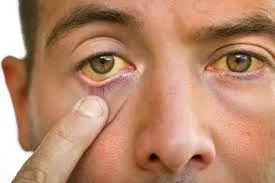jaundice
Home / General Medicine / jaundice
What is Jaundice
Jaundice is a medical condition characterized by the yellowing of the skin and the whites of the eyes, caused by an excess of bilirubin in the blood. Dr. Mahendra Khandare, a renowned expert in liver diseases, provides comprehensive insights into this condition.

What is Jaundice?
Jaundice occurs when there is an accumulation of bilirubin, a yellow pigment that is formed by the breakdown of dead red blood cells in the liver. Normally, the liver processes bilirubin, which is then excreted from the body in bile. However, if there is a problem with the liver, bile ducts, or red blood cells, bilirubin can build up in the blood and cause jaundice.
Causes of Jaundice
According to Dr. Mahendra Khandare, the causes of jaundice can be broadly classified into three categories:
Pre-Hepatic Jaundice: This occurs before bilirubin reaches the liver. Causes include hemolytic anemias and other conditions that lead to an increased breakdown of red blood cells.
Hepatic Jaundice: This type is due to liver diseases such as hepatitis, cirrhosis, and liver cancer, which impair the liver’s ability to process bilirubin.
Post-Hepatic Jaundice: Also known as obstructive jaundice, it occurs when there is a blockage in the bile ducts, often due to gallstones, tumors, or strictures.



